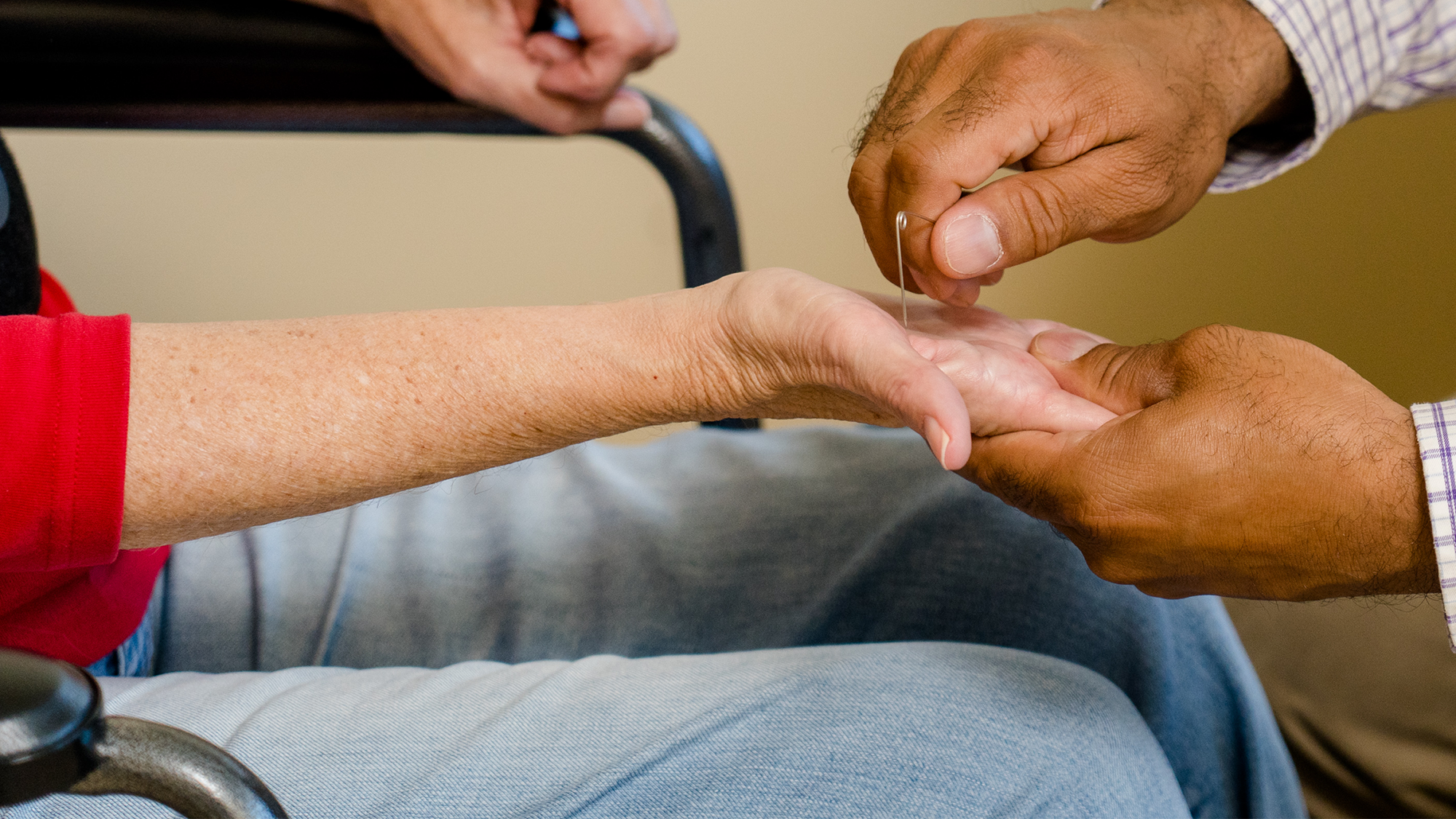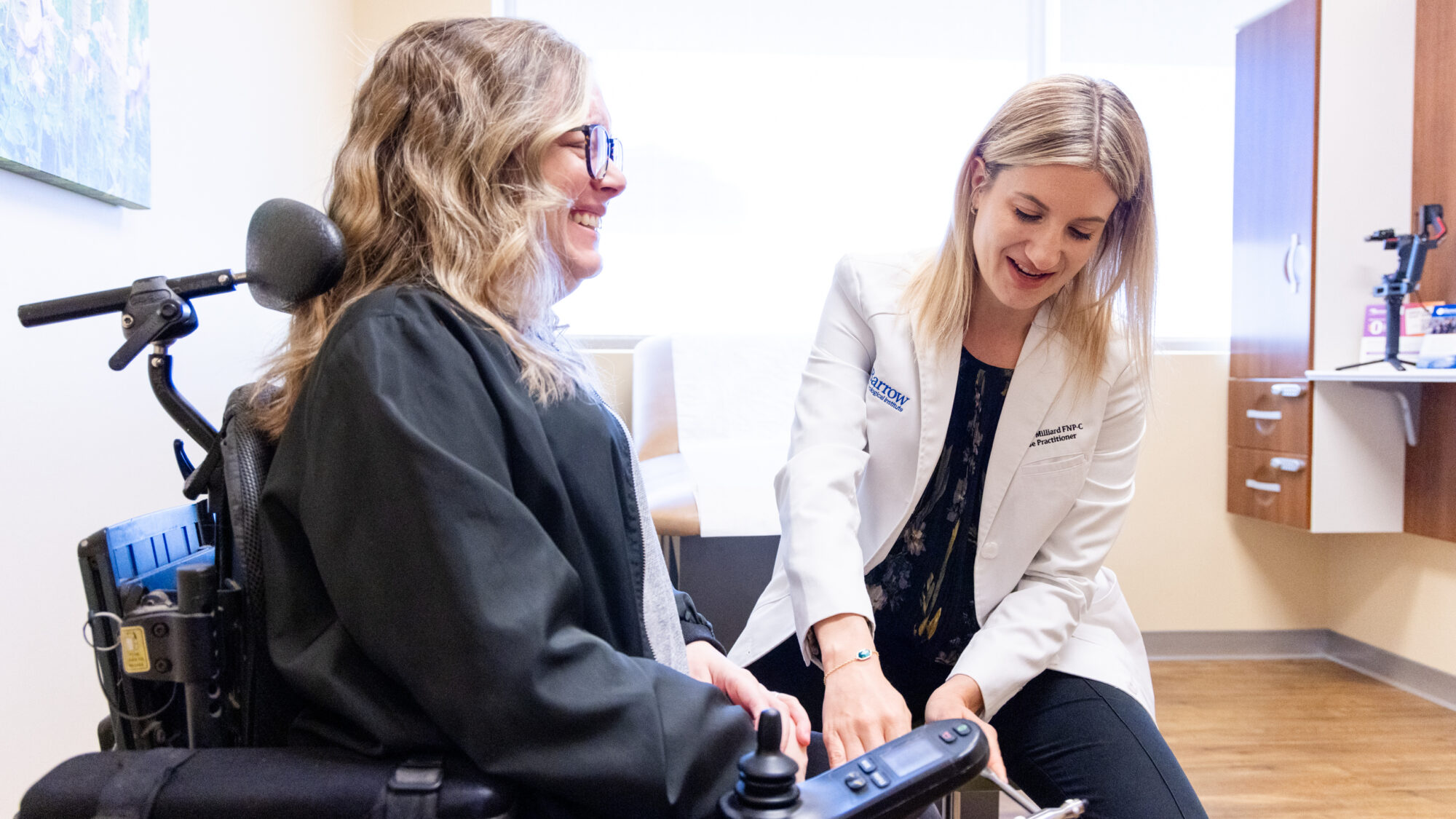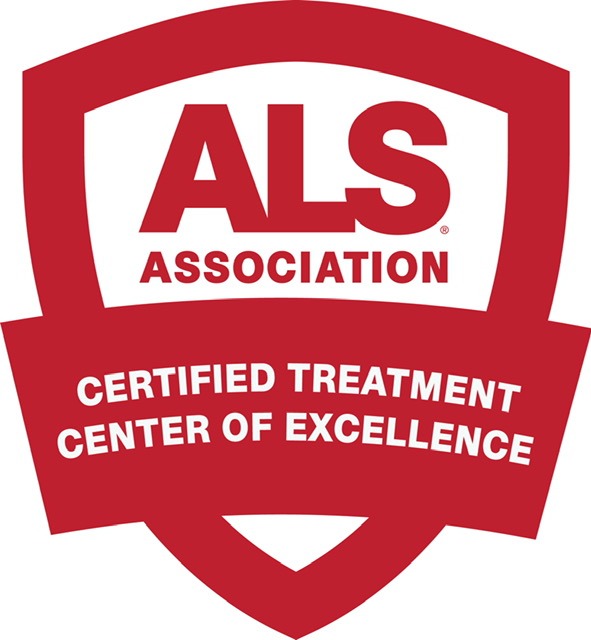
Amyotrophic Lateral Sclerosis (ALS)
Overview
Amyotrophic lateral sclerosis (ALS), also known as Lou Gehrig’s disease, is a progressive neurological disease that causes the degeneration of motor neurons.
Motor neurons are nerve cells in the brain and spinal cord that are responsible for controlling voluntary muscle movements. When motor neurons deteriorate and die, the brain can no longer initiate and control muscle movements. This causes muscles to gradually weaken and waste away (atrophy).
People with ALS can lose their ability to move, speak, eat, and breathe. Most people with the disease will die from respiratory failure, usually within three to five years of symptom onset. However, 10 percent of people survive 10 years or more. While progressive weakness and muscle atrophy are the hallmarks of ALS, people with this disease also may experience mild to moderate abnormalities of thinking, with a small number of patients experiencing dementia.

Symptoms of ALS
Early symptoms of ALS can vary depending on the muscles affected and may be so subtle that they are overlooked. Progressive muscle weakness and paralysis are experienced by everyone with ALS, but with varied rates and patterns of progression.
Symptoms of ALS include:
- Muscle weakness and fatigue in your arms, hands, legs, or feet
- Muscle twitches (fasciculations)
- Tight and stiff muscles (spasticity)
- Muscle cramps
- Slurred speech
- Change in vocal pitch
- Difficulty chewing or swallowing
- Difficulty breathing
- Tripping
- Dropping objects
- Difficulty performing simple tasks requiring manual dexterity, such as buttoning a shirt
- Exaggerated reflexes
- Uncontrollable periods of laughing or crying
ALS does not affect your ability to see, smell, taste, hear, or recognize touch. People usually maintain control of their eye muscles and bowel and bladder functions. Occasionally, memory problems or changes in one’s behavior or personality can affect people with ALS and may even begin before symptoms of weakness.

Treatments for ALS
There are several FDA-approved drug used to treat ALS. Some of them work to reduce damage to motor neurons and slow disease progression by decreasing the release of the neurotransmitter glutamate. These medications do not stop or reverse motor neuron damage, but clinical trials have shown that they extend survival and may delay the need for breathing support.
Other treatments for ALS can include medical equipment and various forms of physical therapy.

Medications for ALS
The FDA has approved new drugs for ALS in the last few years. They work in different ways, so taking more than one of the medications may be possible to help slow the disease.
Other Treatments for ALS
Quality of life, independence and functional capacity can all be treated with a variety of equipment and therapies. The Gregory W. Fulton ALS Center at Barrow Neurological Institute at Dignity Health St. Joseph’s Hospital and Medical Center employs many different specialists with this goal in mind, including:
- Neurologists
- Physical therapists
- Speech therapists
- Occupational therapists
- Respiratory therapists
- Social workers
- Orthotists
- Mobility specialists
- Dietitian
The goal of the Fulton ALS Center is to provide ALS patients with the highest possible quality of life throughout their disease course, and to perform cutting edge research to improve ALS patient care.
What is being done about ALS?
More research is being done on ALS than ever before. New technologies have allowed for insights into the disease that continue to show promise for developing new and better therapies. In addition, increased awareness has resulted in more research funding from foundations and organizations dedicated to curing and treating the disease.
The Fulton Center is one of the national leaders in ALS research. We design, direct, and monitor many of the studies being done in the U.S. and participate as a site in many others. Our patients have the option to participate in both observational (non-drug) studies and interventional drug studies.
Common Questions
How common is ALS?
It is estimated that more than 20,000 Americans may be living with amyotrophic lateral sclerosis at any given time. Based on U.S. population studies, approximately 5,600 people are diagnosed with ALS each year, which is equivalent to about 15 new cases per day.
Who gets ALS?
ALS is most often a disease of middle to later life, with 55 being the average age of diagnosis. However, age of onset is quite broad, with some people experiencing initial symptoms in their 20s, while others have disease onset in their 90s. ALS affects all racial and ethnic groups. Men are more affected than women.
In about 10 percent of ALS cases there is a family history of the disease. A growing number of genes have been shown to cause ALS; in most cases, inheritance is autosomal dominant. This means that a person carrying the genetic mutation has a 50 percent chance of passing it on to their children. The specific gene causing inherited ALS can be identified in slightly more than 50 percent of cases. However, in about 90 percent of cases in the U.S., ALS is sporadic, meaning it occurs apparently at random in people. Military service and smoking are two of a very small number of risk factors for ALS.
How is ALS diagnosed?
Amyotrophic lateral sclerosis can be difficult to diagnose because there is no single test that can identify the disease. Diagnosis is done through a clinical examination and a series of tests, which rule out other diseases with similar symptoms. The best way to diagnose ALS is to be examined by an experienced physician who specializes in neuromuscular diseases.
Diagnostic tests may include:
- Neurological examination
- Electrodiagnostic tests, such as electromyography and nerve conduction velocity
- Lumbar puncture (spinal tap)
- Imaging tests, such as MRI
- Blood tests




